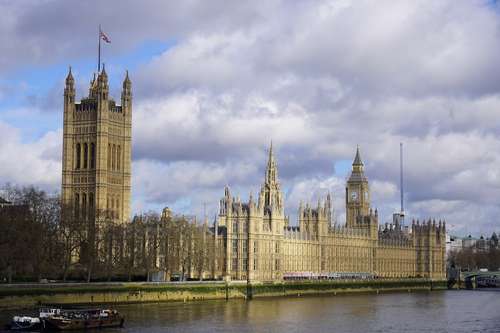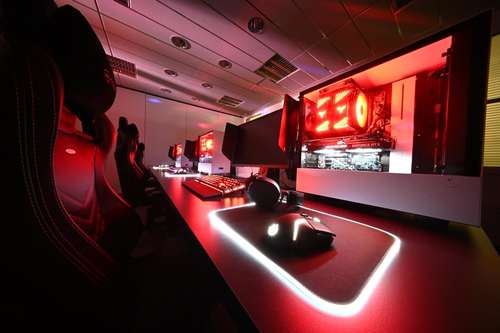The recent news surrounding Rockstar's decision to dismiss 31 employees has ignited a firestorm of controversy. Questions swirl about the timing, fairness, and long-term implications of such a drastic move. People in the gaming community are left wondering where this will lead and what it means for employee rights in a high-stakes industry known for its creative prowess.
From late-night discussions among gamers to serious debates in boardrooms, the layoffs have become a hot topic. Many see these dismissals as not only a corporate decision but a reflection of deeper issues around workplace disputes and employment practices in one of the most influential video game companies on the planet. The spotlight now shines on Rockstar Games and its handling of workforce reduction, raising concerns about how employee termination is managed in the gaming industry.
Background and Immediate Reactions
This section sheds light on the events leading up to the decision and the immediate fallout from the controversial dismissal of 31 employees.
Rumors started circulating in internal circles before the news broke, leaving many staff members on edge. Some long-time employees expressed dismay and disbelief over what they considered an abrupt decision. The dismissal has not only affected those directly involved but has also polarized opinions among fans and industry insiders alike.
The immediate reaction was a mix of shock and anger. Social media buzzed with terms such as 'Rockstar controversy' and 'employment controversy.' Online forums filled with narrated experiences of job loss and workplace dispute, reflecting how disheartening it is to see a company known for its vibrant culture suddenly initiating staff cutbacks without a clear explanation. The reaction was so intense that even the UK Parliament took note, calling for discussions on employee rights and reliable employment practices within the gaming sphere.
In conversations with friends and colleagues, many have raised rhetorical questions like, “Is it fair to simply cut staff in the middle of a critical project?” or “What could be driving such corporate decisions in an industry that thrives on creativity?” These inquiries underscore the broader societal concerns about job security and the unpredictable nature of corporate restructuring. The community is looking for answers and accountability, hoping that this controversy doesn’t become a recurring theme in the future.
Implications for the Gaming Industry
The fallout from the dismissal has important implications not only for Rockstar Games but for the wider gaming industry as well. This section examines the potential long-term effects of this decision.
The gaming industry, with its rollercoaster of successes and setbacks, has always been prone to dramatic corporate decisions. The dismissal of 31 employees sends ripples across the community, as many wonder if this signals a new era of stringent workforce reduction at even the most established studios. For industry insiders, this move is a litmus test for corporate responsibility in times of economic pressure or changing market dynamics.
This controversial decision comes at a time when the gaming landscape is rapidly evolving. With industry news constantly highlighting the balance between creative freedom and corporate control, many see this as a metaphorical crossroads. The layoffs are a stark reminder that behind the glitz and glamour of blockbuster releases lie critical decisions that affect real lives. Some experts argue that employee termination practices, if handled without transparency, could stifle talent and innovation, potentially dampening the creative spirit within the workplace.
People are beginning to compare this situation with previous industry disputes, questioning the consistency of employment practices in high-profile companies. The analogy is simple: imagine a sports team losing key players right before a championship—such a loss could undermine team performance and morale. Similarly, the dismissal of these employees could have lasting consequences on Rockstar’s ability to innovate and maintain its reputation as a leading force in the realm of interactive entertainment.
Moreover, the current environment has made it evident that the pressure to deliver blockbuster titles might be contributing to a high-stress workplace where the risk of job loss is ever-present. Decisions like these, even if driven by strategic imperatives, often resonate beyond the immediate financial impact. They become cautionary tales that ripple across the entire gaming ecosystem, prompting debates on how best to balance growth with the welfare of the workforce.
Future Outlook and Potential Reforms
This segment looks ahead at what might come next for Rockstar and the gaming industry, considering whether this controversy might lead to substantive changes in employment practices or corporate governance.
It’s human nature to learn from past mistakes, and many believe this controversy could prompt a reassessment of internal policies at Rockstar and similar video game companies. The industry's rhythm might shift if more transparent conversations about job security and fair treatment become the norm. Could this event be a catalyst for broader reforms in employee rights? The discussion is more vibrant now than ever before.
Industry analysts suggest that the backlash from this decision might force companies to reconsider how they implement layoffs. By striking a better balance between business necessities and employee welfare, companies might avoid a misstep that undermines their public image. A responsible approach to workforce reduction is critical in an age where public sentiment can quickly turn against even the biggest names.
The future might see more proactive engagement with employees and unions, particularly as governmental bodies like the UK Parliament show heightened interest in the issue. There’s growing pressure on companies like Rockstar to provide clear justifications for their corporate decisions. It’s a wake-up call for leaders to address concerns head-on rather than allowing controversy to fester unchecked.
Some forward-thinking insiders are already discussing potential reforms. From increased transparency in decision-making to improved channels for employee feedback, the industry could embrace a more inclusive approach moving forward. Such changes might not only mitigate the immediate damage but could also bolster the company’s reputation in the long term. After all, trust is hard-earned and easily lost in the fast-paced world of video game development.
In a landscape marked by rapid technological advances and evolving audience expectations, the way a company treats its workforce can be a critical determinant of its longevity. With these dismissals coming under scrutiny, one wonders if this event will serve as a lesson for other tech giants as well.
Conclusion
The dismissal of 31 employees by Rockstar is more than just a corporate decision—it is a focal point for debates on employee rights, corporate transparency, and the future of the gaming industry. This controversial action has stirred emotions and raised questions about fair workforce reduction practices at one of gaming's most iconic companies. As we watch the situation unfold, the hope remains that this setback will pave the way for a more equitable approach to employment in the world of interactive entertainment.
In the end, what matters most is how these industry titans move forward after such events. Only time will tell if Rockstar will learn from this controversy and take steps to ensure that it values the contributions of every team member. The gaming community and industry watchers alike are keeping their eyes on the developments, eager for headlines that signal not just change, but positive change. The conversation continues, and it’s clear that the future of work in gaming is a story we’re all watching with bated breath!




